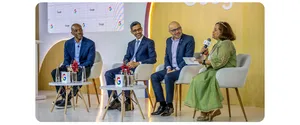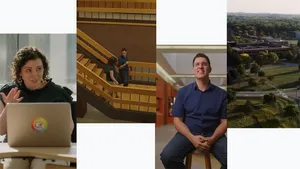Remembering Stonewall, 1969

The park is not a big one. It’s a few thousand square-foot triangle in the Greenwich Village neighborhood of Manhattan, populated by a handful of trees and benches. Looking at it, you wouldn’t know that one night in June 1969, it hosted a crucial turning point in LGBTQ history. Across the street at the Stonewall Inn, a neighborhood gay bar, police broke down the door intending to haul the patrons off for a night in jail. Bar-goers resisted and a riot broke out in the park—it lasted several days and sparked what many recognize as the start of the modern day LGBTQ rights movement.
Google was founded on the idea that bringing more information to more people improves lives on a vast scale. The preservation of history is an essential way to make sure information lives on and reaches everyone. The Stonewall Riots were important to the ongoing road to civil rights for LGBT communities around the world — and their message is as resonant and necessary today as it was back then. To help preserve and amplify the story of the 1969 Stonewall Uprising, Google.org is giving a $1 million grant to the LGBT Community Center of New York City.
The Center, in collaboration with the National Park Foundation, will use this grant to continue its work with the National Park Service, extending the reach of Stonewall National Monument beyond its physical location. Ahead of 2019, which will mark the 50th anniversary of the uprising, the Center will record the stories of those who raised their voices at Stonewall and the many others who were inspired by their brave defiance. These are the stories of transgender women of color who fought back; of queer youth, many of whom were homeless, who bravely refused to be silenced; of the poorest of the LGBTQ community. Those stories will be built into a digital memorial experience available to anyone who visits the park—both in person and online. The funding will also support the building of a curriculum on LGBTQ civil rights to be used in classrooms nationwide.Google.org has provided grants and funding to groups across the world that challenge bias and exclusion by helping to share the stories and history of marginalized groups, from the Equal Justice Initiative to the UN High Commissioner for Refugees. We are glad to continue that work today with the support of organizations like the LGBT Center, who provide so much to their community.
Remembering the people who spoke out against injustice, who fought for the basic right to "be," is key to our universal quest for human rights. By remembering those who came before us, and all we have accomplished since, we ensure that their actions were not in vain. We hope that sharing these stories will help to empower and inspire us all to action.







